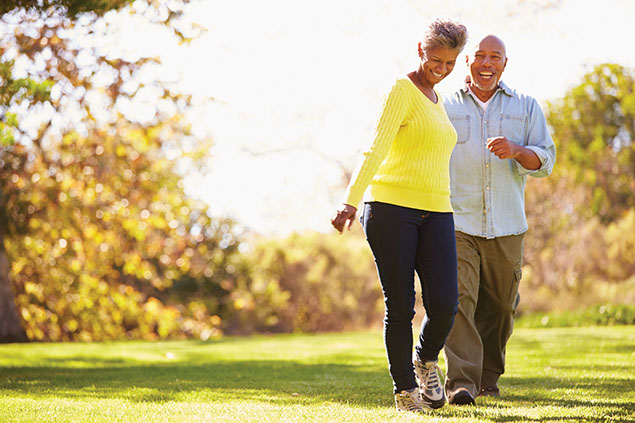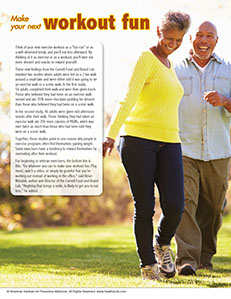SYMPTOM CHECKER
CONDITIONS
Male
Female
Child
Arm, Hand & Shoulder Concerns
Legs & Feet Concerns
Dental & Mouth Concerns
Ear & Nose
Eye Conditions
Head Conditions
Arm, Hand & Shoulder Concerns
Legs & Feet Concerns
Front
Back
Arm, Hand & Shoulder Concerns
Dental & Mouth Concerns
Ear & Nose
Eye Conditions
Head Conditions
Arm, Hand & Shoulder Concerns
Dental & Mouth Concerns
Ear & Nose
Eye Conditions
Head Conditions
Front
Back
Arm, Hand & Shoulder Concerns
Neck Links
Head & Neck Concerns
Arm, Hand & Shoulder Concerns
Neck Links
Head & Neck Concerns
Front
Back
Online Clinic
Wise Healthcare
Make your next workout fun

Print on Demand
Think of your next exercise workout as a “fun run” or as a well-deserved break, and you’ll eat less afterward. By thinking of it as exercise or as a workout, you’ll later eat more dessert and snacks to reward yourself.
These new findings from the Cornell Food and Brand Lab involved two studies where adults were led on a 2 km walk around a small lake and were either told it was going to be an exercise walk or a scenic walk. In the first study, 56 adults completed their walk and were then given lunch. Those who believed they had been on an exercise walk served and ate 35% more chocolate pudding for dessert than those who believed they had been on a scenic walk.
In the second study, 46 adults were given mid-afternoon snacks after their walk. Those thinking they had taken an exercise walk ate 206 more calories of M&Ms, which was over twice as much than those who had been told they were on a scenic walk.
Together, these studies point to one reason why people in exercise programs often find themselves gaining weight. Some exercisers have a tendency to reward themselves by overeating after their workout.
For beginning or veteran exercisers, the bottom line is this: “Do whatever you can to make your workout fun. Play music, watch a video, or simply be grateful that you’re working out instead of working in the office,” said Brian Wansink, author and Director of the Cornell Food and Brand Lab. “Anything that brings a smile, is likely to get you to eat less,” he added.
This website is not meant to substitute for expert medical advice or treatment. Follow your doctor’s or health care provider’s advice if it differs from what is given in this guide.
The American Institute for Preventive Medicine (AIPM) is not responsible for the availability or content of external sites, nor does AIPM endorse them. Also, it is the responsibility of the user to examine the copyright and licensing restrictions of external pages and to secure all necessary permission.
The content on this website is proprietary. You may not modify, copy, reproduce, republish, upload, post, transmit, or distribute, in any manner, the material on the website without the written permission of AIPM.
2021 © American Institute for Preventive Medicine - All Rights Reserved. Disclaimer | www.HealthyLife.com
















































